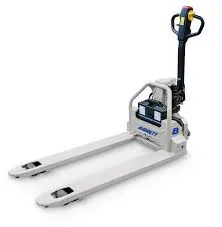


Understanding Lifting Scales Essential Tools for Weight Measurement
Lifting scales, also known as electronic crane scales or hanging scales, are essential tools used to measure the weight of heavy objects. These devices are particularly useful in industries such as shipping, manufacturing, construction, and logistics, where the ability to accurately weigh loads can significantly impact operational efficiency and safety.
A lifting scale operates by suspending an object from a hook, which is then attached to a load cell. The load cell converts the weight of the suspended object into an electrical signal that is displayed in real-time on a digital screen. This technology has evolved significantly, improving accuracy and ease of use, making lifting scales indispensable for heavy lifting operations.
One of the primary advantages of lifting scales is their portability. Unlike traditional static scales, lifting scales can be easily moved and used in various locations. This is particularly beneficial in construction sites or warehouses where heavy loads may need to be weighed at different points. Additionally, many models feature battery-powered options, allowing for even greater flexibility in remote locations where power sources may be limited.
Safety is another vital factor that highlights the importance of lifting scales
. Accurately determining the weight of a load is crucial to prevent overloading lifting equipment such as cranes and hoists, which can lead to catastrophic failures and accidents. By using a lifting scale, operators can make informed decisions about lifting capabilities and ensure that safety protocols are adhered to.
Moreover, lifting scales come equipped with several features that enhance their usability. Many modern lifting scales offer wireless connectivity, allowing for remote monitoring and data collection. This functionality enables operators to track weight measurements over time, which can be useful for inventory management, quality control, and compliance with regulatory standards.
In terms of maintenance, lifting scales are generally robust and designed for heavy-duty use. However, it is crucial to conduct regular checks and calibrations to ensure ongoing accuracy. Users should follow manufacturer guidelines for maintenance to prolong the lifespan of the scale and maintain reliable performance.
With the rise of automation in the industry, lifting scales are also beginning to integrate with other technologies such as software systems for tracking and analyzing load data. This can streamline workflows, improve efficiency, and reduce human error in weight measurement.
In conclusion, lifting scales are invaluable tools that play a critical role in various industries. Their ability to provide accurate, real-time weight measurements enhances safety and efficiency in heavy lifting operations. As technology continues to advance, we can expect lifting scales to evolve further, incorporating features that meet the growing demands of modern industries. Whether it is for lifting equipment, managing inventory, or ensuring compliance with safety standards, lifting scales remain a cornerstone of safe and productive operations across multiple sectors.



